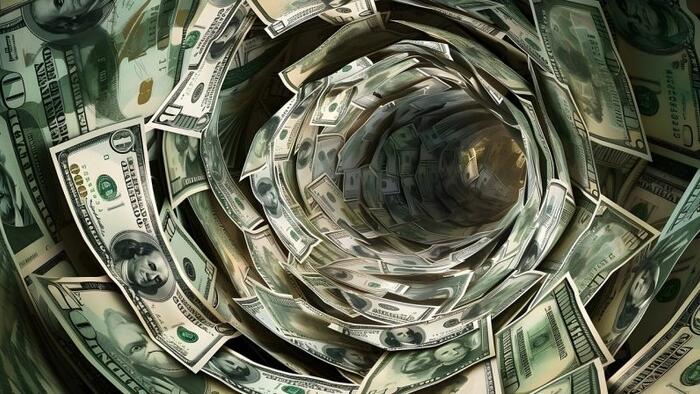In recent years, American households have accumulated an unprecedented amount of debt, with total household debt reaching nearly $18 trillion, a figure that has raised alarms about the state of the economy. While the federal government grapples with an astounding $36 trillion in debt, the surge in consumer debt has gone largely unnoticed. The economy may have once thrived on this borrowing spree, but signs indicate that a painful reckoning is on the horizon. With credit card debt hitting a new record of $1.17 trillion and student loan debt climbing to $1.61 trillion, it is evident that countless Americans are struggling to keep up with their financial obligations. This trend raises concerns about the long-term ramifications of such unsustainable financial behaviors.
A report from the Federal Reserve Bank of New York revealed that credit card debt alone skyrocketed by $24 billion in the third quarter of 2024, representing an 8.1% increase from the previous year. Alarmingly, this rise in debt is happening while income growth lags far behind. The troubling reality is that many consumers are increasingly reliant on credit cards to manage their day-to-day expenses, with 30% of federal student loan borrowers reportedly sacrificing essential needs like food and medicine to meet monthly debt payments. Compounding the issue, 44% of these borrowers indicated that their education debt delayed homeownership, while others have postponed starting families as financial burdens mount.
Amidst this swelling debt crisis, retail and automotive sectors are experiencing severe declines. In 2024 alone, U.S. retailers announced the closure of 6,481 stores, marking the highest level since the COVID-19 pandemic. Companies such as American Freight have led the charge, with widespread shutdowns tied to bankruptcies. In the automotive industry, Nissan has announced significant job cuts and reduced manufacturing capacity to adapt to waning consumer demand. Similarly, Stellantis is temporarily laying off over a thousand employees as it grapples with excess inventory. These examples showcase a broader trend of businesses struggling to maintain profitability in a climate of overextended consumer credit.
The tech sector is not immune either, with companies like AMD planning workforce reductions of around 4% as they seek to realign resources with growth opportunities. While some businesses attempt to adapt, others face dire situations, such as Spirit Airlines, which recently announced plans to file for bankruptcy as its stock plummeted. As the debt bubble continues to unravel, larger corporations are not the only ones suffering; small businesses are finding themselves increasingly unable to meet rental obligations, with nearly half reporting payment difficulties—the highest rate recorded since the pandemic’s peak in March 2021.
Collectively, these indicators paint a stark picture of the economy’s health. The inescapable truth is that although American families enjoyed a period of inflated living standards fueled by borrowing, that era is coming to a crashing halt. The debt once perceived as a means to an enjoyable lifestyle is now morphing into a looming crisis. As financial pressures mount, there is a growing acknowledgement that unsustainable debt accumulation inevitably leads to pain and hardship. Economists and financial experts caution that those offering simplistic solutions to complex debt problems may not be addressing the gravity of the situation.
In summation, the current landscape of household debt in the United States is alarming and suggests a society grappling with the consequences of financial overreach. With personal, corporate, and government debts at staggering levels, the impending economic fallout appears unavoidable. As individuals cling to debt to sustain their lifestyles, they must also brace for the long-term effects that such behavior will entail. It is critical for consumers, businesses, and policymakers to reflect on this challenging reality and prepare for the difficult adjustments that lie ahead as the nation confronts its burgeoning debt crisis.

